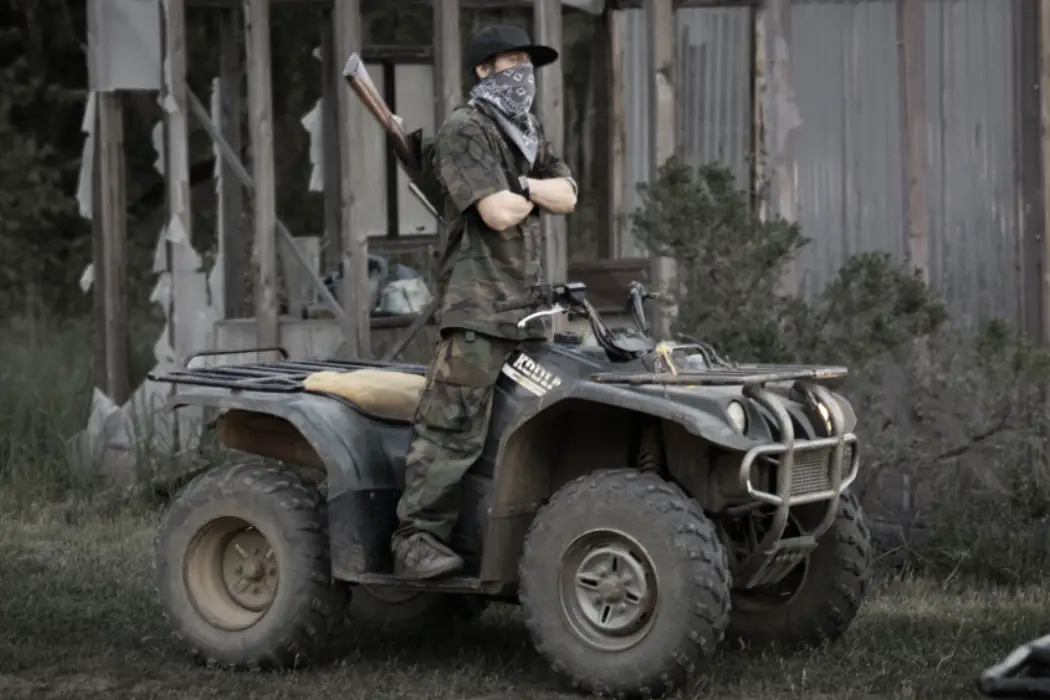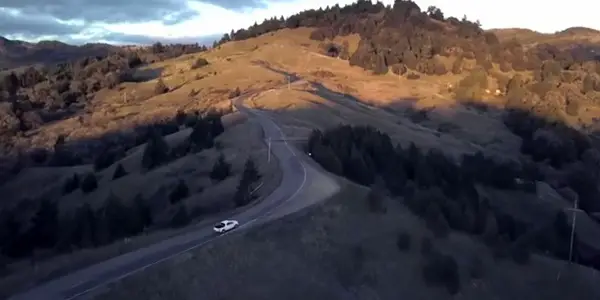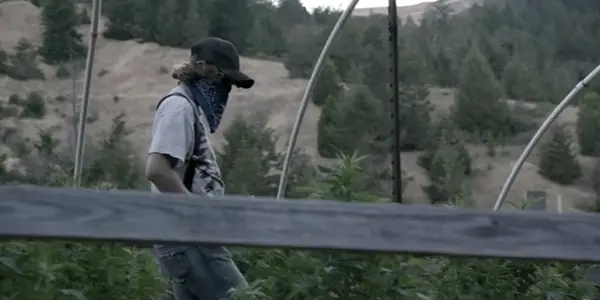MURDER MOUNTAIN: Netflix’s Documentary Domination Continues

Tom is a recent graduate based in the UK, who…
Murder Mountain is a fascinating, if a little confused, profile of a place and its people.
Netflix’s documentary arm had an amazing 2018, with series like Wild, Wild Country, Dirty Money and Dark Tourist providing the most interesting and politically relevant non-fiction television available in the year. Days before the year ended, Netflix also found time to release Murder Mountain – a fascinating story, though one that isn’t quite as well told as its competitors.
Murder Mountain is about California’s Humboldt County, which grows around 80% of the US’s marijuana, but is also rife with crime – it’s perhaps the Wild West of weed. The series explores the county’s industry roots, as well as the way it is dealing with marijuana legalization, and in particular, focuses on the 2013 disappearance of Garret Rodriguez.
Combining The Different Strands
As is clear from the description, Murder Mountain has many plates spinning – too many, perhaps. It jumps between Rodriguez’s disappearance, Humboldt’s history, the experiences of various marijuana farmers, the lifestyles of residents of local towns, police and political involvement in the region, and various other anecdotes and accounts. Unfortunately, this means its scope is far too wide, and each episode jumps between different narrative threads without giving many time to develop.

For example the second episode, “Paradise Lost” follows a marijuana farmer rebuilding his farm after jail, then the story of the first farmers in the county, one particular stage in the Rodriguez saga, the fall of the first farmers at the hands of government sting operations, and the reactions of farmers in the county after marijuana was legalized – all over the course of 40-minutes. None of these threads inform or expand on any of the others, and so the episode quickly becomes a confusing blur of different times, peoples, and narratives.
The last two segments of “Paradise Lost” show the extent of historic government operations shutting down marijuana farmers around Humboldt, and then the way contemporary government initiatives to legalize marijuana is affecting modern-day growers. The tentative connection is clear, showing the way the government affected growers at different points in time, but there’s no deeper connection or comment than that, so the cut feels unnecessary. In addition, we aren’t told the fates of the various interviewees and farmers then or now, so the thread being dropped feels even more unnecessary and abrupt.
If there is one prevailing story it’s that of Rodriguez. The last four episodes are almost exclusively about his murder, and the rise and fall of the Alderpoint 8, a band of vigilantes who sought to uncover the mystery. This is where the series shines, as this story truly is a fascinating and gripping real-life drama, enhanced by the series’ direction. Interviews and revelations are saved for the perfect time; tension is built between what’s being shown to the audience and what isn’t, and the vignettes that aren’t about the story are still pertinent to the overarching narrative. After a messy first few episodes, Murder Mountain finds its feet for a spectacular end.
Documentary for Good
The most important tool of documentary, and cinema in general, is that it can be used as a force for good. This is where Murder Mountain surpasses its Netflix brethren, both in terms of airing new voices on contemporary political issues and the actions that are shown during the documentary.
The growing consensus is that marijuana legalization is a good thing – punishment for weed-related offenses help perpetuate problematic tendencies in the legal system, and the history of its prohibition is grounded in racist and elitist ideas. However, as the documentary points out, marijuana legalization is a terrible thing for the growers. Between the various government taxes, regulations, and fees, legalization is putting more growers out of business than drug crackdown policies ever did. The regulations aren’t tailored for independent growers, it seems, but massive corporations who can create large-scale growing operations without worrying about thousands of dollars in fees.

Of course the documentary doesn’t suggest the drug should be illegal, but points out the ways legalization targets and cripples independent growers and brands. It gives a voice to people who otherwise would be forgotten, and continues Dirty Money’s message that “all corporations are evil”.
There’s another positive act Murder Mountain takes, albeit on a far smaller scale than giving a voice to the voiceless. The show ends with a poignant union between two elderly individuals, both whose lives had been deeply affected by the Rodriguez case, and who had a shared past, but had never met each other before. It’s a touching finale, which was organized and arranged by the filmmakers to finish off the series, and exhibits a theme running throughout – people coming together despite adversity.
Murder Mountain: Conclusion
Murder Mountain isn’t quite as gripping as Wild, Wild Country, as relevant as Dirty Money, or as binge-worthy as Making a Murderer. However it has enough of each trait to make it a worthwhile viewing experience anyway. Push through the confused direction of the first few episodes, and a great story emerges.
On top of that it’s a really fascinating insight into unique communities, unexplored lands, and disenfranchised voices – and isn’t that the point of a documentary in the first place?
What other documentaries have you seen that explore different perspectives to big issues? Let us know in the comments below!
Murder Mountain was released on Netflix on December 28, 2018.
Does content like this matter to you?
Become a Member and support film journalism. Unlock access to all of Film Inquiry`s great articles. Join a community of like-minded readers who are passionate about cinema - get access to our private members Network, give back to independent filmmakers, and more.
Tom is a recent graduate based in the UK, who writes about films and games, and makes a few of his own. If he's not watching a film, playing a game or writing a script - don't worry! - he's probably just gone to make a cup of tea. He's never far from a screen.













